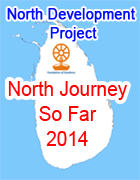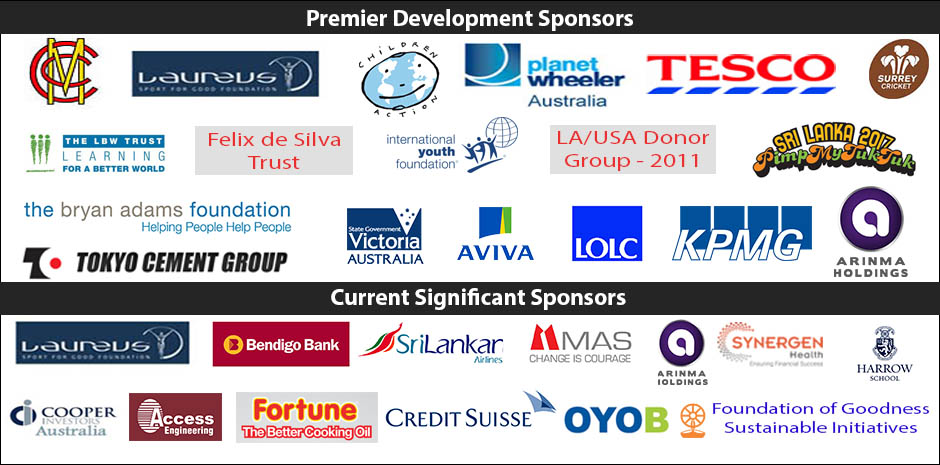The Cartwheel Initiative in Seenigama While on assignment in Sri Lanka in 2010, Ashok Sinha visited the north of the island, just one year after the war ended. Struck by how silent the kids he found there were, he wanted to find a way to give them a voice and this idea sparked the foundation of the Cartwheel Initiative. Cartwheel’s first visit to Sri Lanka was in 2011, and now, in 2013 they have returned for yet another workshop. Cartwheel is a team of professional artists who help young people build bridges within their communities and across ethnic and social divisions by recognizing that arts education can be especially empowering to children who have experienced traumatic events in their lives. Guided by art therapy principles, they focus on youth aged 13-18 who live in these areas and offer artistic activities with the goal of improving their creative expression. Through coordinated workshops in animation, photography and music, they attempt to inspire youth to find their voices and tell stories about their communities. By hosting community exhibitions at the end of the workshop to showcase their art, children are recognized for their efforts, improving their self-confidence as well as enhancing their attachment to their community. This positive influence on self-identity, conflict resolution, and collaboration translates into improved life experience. This time, their plan was to make two short films entirely written, produced and directed by kids and for this task, they chose the theme ‘I have a voice’ to encourage the children to look forward and beyond, rather than back and to discover a sense of individuality. Their final goal was to start a creative dialog between the children in the North who lived through the war and the children in the South who are survivors from the tsunami. By dividing the kids in to groups who were to produce each other’s dream, they strove to start a creative dialog between children in the North and the South. The 2013 Cartwheel team to Sri Lanka was made up of Ashok Sinha, the founder of the Cartwheel Initiative who is a New York based photographer who has traveled to more than 40 countries for his photographic projects, Joe Vena who directs and develops the Children’s Museum of Arts Media Lab and teaches at a number of school partnership workshops and animation camps and composer/ director Billy Fox who is the founder of the Kitsune Ensemble and internationally lauded for his work. The workshop combined 11 kids from the North (Pandiyankulam, Mallavi and Kilinochchi) and 16 students from the South (Rathgama, Kahawa, Udumulla, Akurala and Seenigama). The 27 students were mixed together and divided in to three groups; The animation team headed by Joe, the photography team headed by Ashok and the music team headed by Billy. The most important part of the workshop though, was helping the children to discover their individuality, gain confidence and find their voice. Through the workshops, they taught the students the value of being an individual and of being different. Joe was always a whirlwind activity, flitting between his animation students and never still for even one second as he guided them through the details of animation, cartooning and stop motion as they worked on bringing two simple storylines (thought up by the wild imagination of the children) to life while Billy inspired his team to compose an original score for the short films that they would produce and Ashok had set his group of minions loose to explore the grounds and capture entire stories within the frames they shot. Over the course of the 8 day workshop, the children went from strangers to the best of friends. Separated by war, the children in the South thought of the North as a different country and the children from the North came to understand firsthand what the experiences of the tsunami had been like for the kids from the South. Through their discussions the children learnt about shared experiences of growing up, loss, poverty and hardship, discovering that although they lived in two different corners of the island, they were far more alike than they originally imagined. A notable incident was the opportunity the kids were given to put their heads together and come up with two storylines to animate and at the end of the brainstorming session they had two beautiful stories put together irrespective of the fact that they spoke two different languages, in fact, this small detailed almost seemed to have been overlooked as they found ways to connect and communicate without words. Children who hardly spoke and were afraid to introduce themselves had learnt self-confidence and through team building exercises they had learnt how to make friends and establish a connection with others. Perhaps one of the key reasons for this was that at the very beginning of the workshop, the Cartwheel team encouraged the children to speak up and express themselves, “Every question is a good question, and nothing is too stupid or too trivial” they advised, “And every answer is correct, there is no such thing as a wrong answer”. Ashok and a team of FoG staff had the good fortune to follow up on how the kids were doing after the workshop during a recent visit to the North. From speaking to their parents and friends, we discovered that every child had been touched, and changed for the better by their experience. When the children initially arrived in Seenigama and were invited to introduce themselves, the first person to come forward with no hesitation at all was Dilaksan who worked on the animation project with Joe. One of five siblings, Dilaksan had always lived in his brother’s shadow. His older brother was the outgoing one, the friendly one, the one that all the teachers loved while Dilaksan was always in trouble for not participating in class activities. “He was not a happy child,” reflected his father (who still suffers from a shrapnel injury to the head after the war), “and the boy who came back from Seenigama was not the quiet and withdrawn one who left home. Now, Dilaksan is happy and bubbly.” The least privileged of the children to attend the workshop, Jinthusan was the most talented child to emerge from the workshop, and Ashok would always call him ‘mini me’. Jinthusan grew so confident with his photography skills that by the end of the workshop, he would try to criticize Ashok’s captures. Jeyanath Thaluksan lost his right hand and leg to an artillery shell and his father who lost his leg during the early stages of the war and lost his life during the last stages. Thayuksan is a survivor though, and he has never let his handicap hold back his life. Thayuksan plays cricket with his friends, jumped in to the pool at the MCC Centre and put his whole heart in to Billy’s music workshop, never once letting the smile slip from his face. This last glimpse of the kids, back home after the workshop proved incredibly valuable for we were able to ascertain that Ashok had managed to achieve exactly what he sought to do- to give the children a voice, and turned them in to confident and happy individuals. Many of them had discovered new talents that they never knew they possessed and perhaps some have even found their calling and something new to dream about. We extend our most heartfelt thanks and gratitude to the Cartwheel Initiative, not just for having partnered with us in this great endeavor, but also for what they continue to do so passionately and selflessly for the sake of children the world over. We wish them all the best in all future endeavors and hope to see them return to us someday.
“We worry about what a child will become tomorrow, yet we forget that he is someone today”
04.09.2013 
|













